
by Mama Mzungu (Kenya) | Jun 19, 2013 | Casting a Wider Net, Cultural Differences, Grandparent, Interviews, Life Balance, Motherhood, Parenting, Social Good, Traditions, Uncategorized, World Motherhood, World Voice
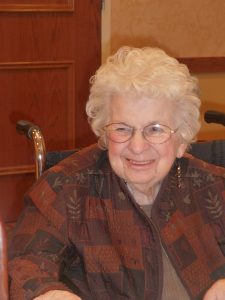
Our “Casting a Wider Net” series features mothers around the world whose voices have typically been excluded from the blogosphere, due to lack of access to the internet, low literacy or poverty. This feature aims to include their important and distinct perspectives with interviews and occasional video clips.
My grandmother, even at 91, never ceases to amaze me. She has fought back from accidents and illness, car wrecks and strokes, with unexpected strength and optimism, probably from a deep drive to feel fully engaged in the world. When my grandfather, the love of her life, widowed her over 30 years ago, she saw past her grief to discover new joys, taking up folk dancing and beginning a new career as a pre-school teacher. Today, her hands shake, the result of essential tremors, but that was beside the point when she decided to take up pottery – a unquestionably physical art form – in her 8th decade of life. Her brightly colored ceramic creations fill her small apartment and she makes gifts of them for her 5 grandchildren and growing brood of “greats.”
But it’s not just her zest that draws you in. She’s warm, the kind of woman it’s easy to open up to, a good listener and curious question-asker. It’s probably this quality, along with her undeniably sweet demeanor, that has kept her in companionship since my grandfather passed. And it’s this quality that made me want to turn the tables and ask her questions. (more…)
Originally from Chicago, Kim has dabbled in world travel through her 20s and is finally realizing her dream of living and working in Western Kenya with her husband and two small boys, Caleb and Emmet. She writes about tension of looking at what the family left in the US and feeling like they live a relatively simple life, and then looking at their neighbors and feeling embarrassed by their riches. She writes about clumsily navigating the inevitable cultural differences and learning every day that we share more than we don’t. Come visit her at Mama Mzungu.
More Posts - Website
Follow Me:


by Ecoziva (Brazil) | Jun 17, 2013 | Babies, Being Thankful, Birthing, Brazil, Family, Health, Home, Humanity, Husband, Inspirational, Motherhood, Pregnancy, Spirituality, Womanhood, World Motherhood, Writing, Younger Children
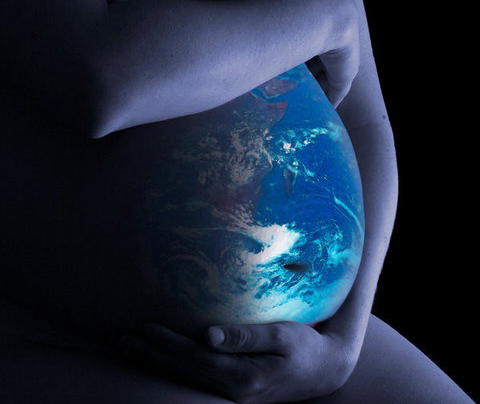
Coincidence or not, about five minutes after the encouraging message the contractions began. At first I didn’t want to admit they were contractions – not even to myself. It is true that they were different from any kind of contraction I had felt before. They were restricted to a small area of my lower abdomen and were less painful. By then my husband had already filled in the tub and after a while I finally accepted I was in active labor and agreed that he turn on the water heater.
The warm water calmed me and I managed to get all thoughts out of my mind. The fear was completely gone. I soon figured out that each contraction lasted exactly the time it took for me to mentally recite four prayers I knew by heart due to my Catholic upbringing: Our Father, the Hail Mary, the Guardian Angel and the Saint Germain prayers. I used that as a meditation and it made the contractions quite bearable.
What was happening around me is all jumbled in my mind and I don’t really remember. I know that our daughter had become fully awake, while our son completely blacked out no matter how much his father tried to wake him. My husband was also running around back and forth organizing things (I think).
The midwife arrived at around 11:30 p.m. with her daughter (an apprentice midwife), a doula, and her sister, an acupuncturist. After talking with them for a while I reluctantly left the water to be examined. The baby’s heartbeat was fine and I was 7 cm dilated.
Since my daughter’s labor had progressed a bit faster I was slightly discouraged thinking I still had another hour or so before reaching full dilation. However, at this point the midwife asked permission to try something new with me. She (who is also an acupuncturist) and her sister had recently learned a way to diminish the pain in labor and I would be the first they would try it on. They also wanted to try a technique where I would push as little as possible and let the baby come out softly in order to avoid tearing (this was due to my big babies and the enormous tear I had the previous time).
No, the pain did not diminish (much to the contrary!). Yet what happened after she placed the acupuncture needles was equally amazing. Things sped up considerably and in two or three contractions I felt like pushing. Not only did I feel like pushing but I couldn’t help it – so much for letting the baby come out slowly! Differently from my previous labor processes, where the pushing phase felt much more like a need to go to the bathroom, this time these contractions were quite painful.
During my daughter’s labor process I held back for a while during the pushing phase because I was afraid of tearing. This time I just wanted to get it over with and see our son. Not simply get over with labor – I wanted to put it all behind me, all the months of illness after illness, all the fear, and now the pain.
At some point our daughter (who was watching everything outside the tub, right behind me) started crying, I guess from all the faces I was making as I pushed. I reassured her mommy was fine and my husband picked her up.
I pushed so hard I began to feel my blood pressure drop as if I was going to faint. I asked for the water-honey mixture my husband had prepared while the midwife pressed an acupressure point straight below my nose, and I soon felt better.
I checked to see how far the baby was from crowning and was once again discouraged when I felt the head about 10 cm away. The midwife reassured me that it wouldn’t take long for him to descend and in the next contraction I pushed with all my might. I checked again and the seemed the distance seemed to have decreased by half.
Amidst all this, everyone in the room was singing a beautiful song that talked of world peace, union and love. What a wonderful way to welcome a new being onto this planet! Over the next days this song was in my head, and every time a warm feeling came to my heart, along with a wish that more children could come into the world in such a loving, harmonious way. I truly believe it would contribute to a more peaceful Earth.
Two or three contractions later he emerged. It was 34 minutes past midnight. I remember the first words the midwife told me, smiling, were “You broke a record!”
I asked if the cord was around his neck and she said yes and removed it. Then he came straight to my breast. I had felt a great sense of relief and contentment after my two other children were born – even after the C-section, but nothing can be compared to this time. All of a sudden I felt like a completely new woman, fearless and full of energy, and who seemed to never have been ill or in pain.
After the cord stopped pulsating, my husband cut it and we waited for the placenta, chatting excitedly. I had thought of having a Lotus birth, but after so much havoc I realized now I just wanted to rest. I donated the placenta to the midwife as she uses it to make homeopathic medicine.
All in all – despite the initial fear and panic – it was a wonderful birth, a great gift after such a difficult pregnancy. As I finish writing this our beautiful baby boy (the best gift of this entire story!) is sleeping peacefully next to me.
How was/were your birthing experience(s)? Please share.
This is an original post to World Moms Blog from our mother of three in Brazil, Eco Ziva.
Eco, from the greek oikos means home; Ziva has many meanings and roots, including Hebrew (brilliance, light), Slovenian (goddess of life) and Sanskrit (blessing). In Brazil, where EcoZiva has lived for most of her life, giving birth is often termed “giving the light”; thus, she thought, a mother is “home to light” during the nine months of pregnancy, and so the penname EcoZiva came to be for World Moms Blog.
Born in the USA in a multi-ethnic extended family, EcoZiva is married and the mother of two boys (aged 12 and three) and a five-year-old girl and a three yearboy. She is trained as a biologist and presently an university researcher/professor, but also a volunteer at the local environmental movement.
More Posts
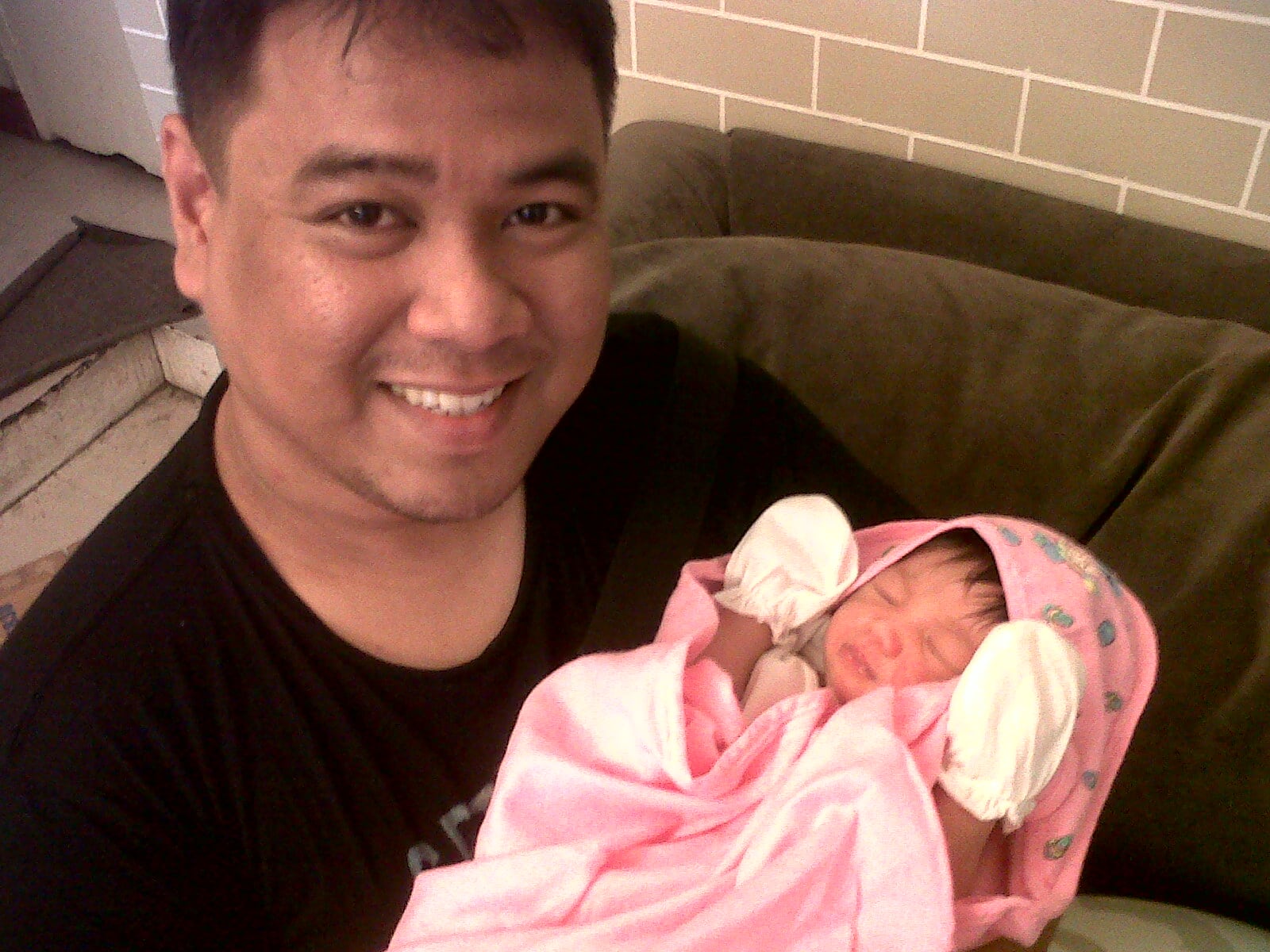
by Tina Santiago-Rodriguez (Philippines) | Jun 13, 2013 | Child Care, Husband, Parenting, Philippines, Tina Santiago-Rodriguez, Truly Rich Mom, World Moms Blog, World Motherhood
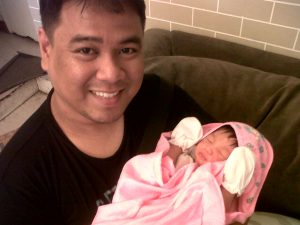 I know some of you may not agree with the title of this post but humor me anyway. I’m writing this using my phone, while nursing and holding my seven-week-old daughter close to me, skin to skin. She’s been sick since birth, you see, and lost a significant amount of weight and is recovering from an infection. (The awesome ladies from my World Moms Blog family know in detail what’s been happening in my life lately and you folks who may be curious can get more details over at www.trulyrichmom.com.)
I know some of you may not agree with the title of this post but humor me anyway. I’m writing this using my phone, while nursing and holding my seven-week-old daughter close to me, skin to skin. She’s been sick since birth, you see, and lost a significant amount of weight and is recovering from an infection. (The awesome ladies from my World Moms Blog family know in detail what’s been happening in my life lately and you folks who may be curious can get more details over at www.trulyrichmom.com.)
Anyway, back to the post title. While many mothers may not be raising their children with their husbands or partners or their kids’ birth fathers (because of their circumstances and/or choices), for many of us, this is still the set-up we have: mom AND dad work together to bring up the kids and make sure they become productive citizens.
This is certainly true in my case, and because it is Father’s Day this weekend, I want to take this opportunity to thank all the “World Dads” out there who are committed to helping their wives or partners raise their children, including my own husband.
The past seven weeks with our now-recovering baby have been extra challenging and I don’t think I could have survived them without her father. Anthony has been a pillar of strength for me and although I know that deep down he has been worried over our little one too, he has never shown it, and has always reminded me that “all is well.” (more…)
Tina Santiago-Rodriguez is a wife and homeschool mom by vocation, a licensed
physical therapist by education and currently the managing editor of Mustard, a
Catholic children's magazine published by Shepherd's Voice
Publications in the Philippines, by profession. She has been writing
passionately since her primary school years in Brunei, and contributes
regularly to several Philippine and foreign-based online and print publications. She also does sideline editing and scriptwriting jobs, when she has the time. Find out more about Tina through her personal
blogs: Truly Rich Mom and Teacher Mama Tina.
More Posts

by Sarah Sensamaust | Jun 12, 2013 | Africa, Child Care, Childhood, Cultural Differences, Family, Home, Living Abroad, Motherhood, World Motherhood
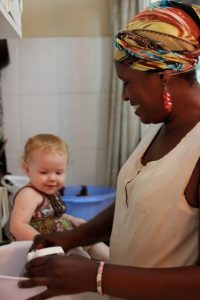
Look for Congo on any list ranking quality of life, poverty rate, violence per square meter, etc. and we don’t fare well. Great place to raise a kid, right?
Well, actually, for us, yes.
My friend Jill is my neighbor, co-worker and blogging partner on our blog Mama Congo. We raise our children, along with our husbands, in the Democratic Republic of Congo. What we lack in first world standards, we make up for in mamas. Our children call at least 6 women “mama.” Maybe more depending on the day.
In the Congo every woman is called “Mama So-and-So.” I’m Mama Sarah, she’s Mama Jill, and the women who come to our homes everyday and help us raise our children are Mama Youyou, Mamicho, Mama Vida and Mama Nounou. That’s a lot of mamas between our two households.
My husband Adam and I moved to the Congo five years ago and Jill and her husband Johan moved in next door a little while later. Our children all run around together getting bit by mosquitoes while we call for them to return to their respective houses. It’s a great life; made possible mostly by our mamas.
Jill and I are about to travel back to the States to visit our families for the summer. We’ll spend time with the grandparents, show off the new tricks our kids can do, and indulge in all the food we can’t find in Congo. But sometimes it’s hard to leave our little “village” of women raising our children with us.
Sure we’ll miss their help, but what we mostly miss is how totally fun and wacky and sometimes completely puzzling it is to raise your kids with a Congolese woman by your side. For example, sometimes we’ll find the mamas up in a tree throwing fruit down to our kids. They yell in French, “Look out below!” As star fruit or bunches of bananas rain down.
Every now and then from my office window I’ll see them toting our children on their backs when their little legs are too tired to walk home from the playground. Even the smallest baby cries, “Au dos. Au dos,” (on your back) when she wants to hitch a ride.
I know that if my daughter hasn’t eaten enough of her breakfast, I’ll get an earful when Mama Youyou shows up. She examines the size of her belly, determines it’s not properly filled, and then coaxes her into eating more. Next she reminds me I need to keep my kids nice and fat so that if they get sick they’ll be okay.
When the kids do inevitably get sick, the mamas are the biggest worriers. I get that. Where we’re from in the States, children get sick and then they get better. Here in Congo, that’s not a guarantee. So everyone hovers and shakes their heads and carries them au dos all day while rotating cold washcloths on their foreheads. It’s a major production. And the children love it.
Sometimes people ask us if it’s hard to share that title of “mama” with others. It isn’t. It really isn’t! We feel like the luckiest mamas because our children are being raised in such a different and loving way. Sure, it took some time for everyone to adjust and learn their place in the household, but we’ve all got into a rhythm now. I hold this end, you hold that end as we wrestle their filthy bodies in the tub.
I think every mother can agree that raising your children with a lot of help, mixed in with doses of advice, and sprinkled with good old fashioned judgment to keep you on your toes, is a great way to be a mama.
Do your children have other “mamas” where you live? Who are they, and how do they help you?
This is an original post written for World Moms Blog by Sarah. You can find Sarah blogging with Jill at Mama Congo.
Photo credit to the authors.
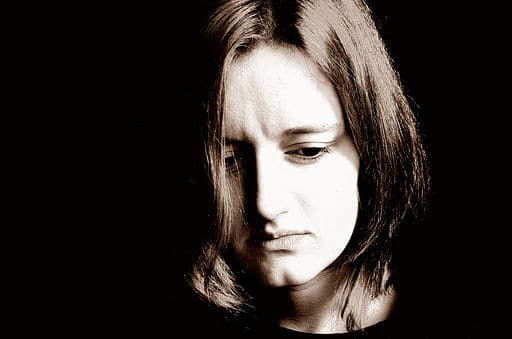
by Carol (Canada) | Jun 7, 2013 | Babies, Canada, Communication, Culture, Family, Health, Infertility, Kids, Loss of Child, Maternal Health, Miscarriage, Motherhood, Pregnancy, Relationships, Womanhood, Working Mother, World Motherhood, Younger Children

Recently, when I was around 10 weeks pregnant, I went in for a dating ultrasound.
My midwife wanted to confirm my baby’s due date, because we suspected that I was actually 9 weeks along, or maybe 11 weeks.
The radiologist discovered that my baby was dead – had died at 8 weeks and 4 days… whenever that had been.
We all know that miscarriage is always a risk, but it’s still a shock to go in for a routine ultrasound with a seemingly healthy pregnancy… and then leave in tears talking about getting a D&C.
A week later I was sedated and the remains of my baby were scooped out of me.
I was heartbroken. I was grieving.
But I was also very lucky: I had immense amounts of support.
I had friends texting me constantly asking what they could do to help. My house smelled like roses, because the girls at work sent me a big bouquet of flowers. My neighbours invited our son over for dinner so we wouldn’t have to fake cheerfulness with him, and left cookies in our mailbox.
The love and support I received contrasted violently with the experience of a friend, who was fired from work after her miscarriage, who got no flowers, no cookies, and whose grandmother and mother-in-law both hurt her frequently by nagging her to produce a baby.
But it’s not a fair comparison – you see, I told people about my miscarriage.
My friend did not.
The conventional wisdom – in our part of the world at least – says that you shouldn’t even tell people that you are pregnant, lest you miscarry. Better to wait until the second trimester, when your risk of miscarriage drops dramatically.
The implied assumption is that you don’t want to tell people about your miscarriage, so it’s better keep your pregnancy a secret until that danger has passed.
I want to know: Why don’t we want to talk about miscarriage?
For many women, miscarriage isn’t just a matter of, “Oops, never mind, no baby after all!” While some may feel that way, and that’s fine, others can be devastated.
I wasn’t just mourning the 8 week jellybean inside me. I was weeping for the baby I had been expecting, my Christmas baby, and as I wept, I clutched the little newborn sized Christmas pajamas that I had already bought.
And sometimes these women suffer side by side.
I had two friends who miscarried close to each other. Both told me, neither told the other. They each thought they were alone. Neither knew what the other was going through. Neither knew that they had something in common.
When I announced my loss at work, every woman over 35 had a miscarriage story to share.
Just think – of the ten women at my work, four have had miscarriages. And none of them talked about it… until I announced mine.
They shared their grief with me, and we hugged each other, and listened to each other’s stories.
And I wondered… why aren’t we supposed to do this?
Why do so many women keep miscarriage a secret, often not even telling friends or family members? Why do some women keep their pregnancies a dark secret, just out of fear that the pregnancy might end?
There’s an element of shame that hovers around miscarriage.
People think that talking about their miscarriage somehow addresses a failure, as if they had made a mistake.
It’s natural to blame yourself for your miscarriage. My first thought was, “What did I do wrong?”
The first thing my midwife said to me was, “You did nothing wrong.”
When I spoke to the nurse at the Early Pregnancy Assessment Centre, she told me that 97% of the time, miscarriages are caused by chromosomal abnormalities and have nothing to do with the mother’s actions.
When I went on to worry that something I was exposed to at work might have killed my baby – x-rays, or pesticides – she told me, “We see a LOT of women in here who are pregnant, but don’t want to be. You wouldn’t believe the crazy stuff they have tried to end the pregnancy at home. It never works. Trust me – there is nothing you could have done to bring this on yourself.”
My miscarriage was not my fault.
I didn’t fail, and the women who have told me about their miscarriages didn’t fail either. So why do we treat it like a failure?
But even the term “miscarriage” implies some fault on the woman, as if I had dropped the baby in a moment of thoughtlessness. In fact, some women have even been prosecuted for their miscarriages.
So we don’t tell people about it.
In a culture where you aren’t supposed to talk about your miscarriage – or even your first trimester pregnancy lest it end in miscarriage – families grieve for their lost babies in a vacuum of shame and secrecy.
There is no funeral. No compassionate leave. No Hallmark cards. But that doesn’t make it less real of a loss.
Even women who aren’t grieving their miscarriage – perhaps they didn’t even want the baby – feel the need to hide it due to the stigma around it.
And that’s never going to change unless people start talking.
Until we bring miscarriage into the light, it will remain a dark, hidden secret.
Until people start talking about it, people won’t know how to respond to it appropriately. Until we remove the stigma, the shame will continue.
Until we talk about it, people will continue to suffer in silence.
Because if you don’t tell anyone unless they have had a miscarriage too, how does anyone who has miscarried find each other?
It just takes one person to speak out, to announce their loss like it is any other loss, and the stories and support come pouring in.
So we need to speak up.
We need to tell people when we suffer a loss. We owe them that, and we owe ourselves that, because for all we know, they need someone to talk to, too. Don’t assume that they don’t know what you’re going through, because chances are, they do.
I’m asking all of you to be brave.
Talk about it on Facebook.
Tweet it, #talkaboutmiscarriage.
Tell people you don’t know very well.
Tell them if you’re grieving. Tell them if you aren’t.
There’s no reason to hide what has happened, or how you feel about it. Chances are neither the experience, nor your emotions, are unique to you.
Only by opening those doors can we find the support we need, and join together the women who have been suffering in silence for all this time.
Have you or has someone close to you had a miscarriage? How did cultural attitudes toward it affect the grieving process?
This is an original post for World Moms Blog by Carol. She can be found blogging at If By Yes and on Twitter @IfByYesTweets.
Photo credit to Jiri Hordan. This photo has been released into the public domain by its author, Jiri Hordan.
Carol from If By Yes has lived in four different Canadian provinces as well as the Caribbean. Now she lives in Vancouver, working a full time job at a vet clinic, training dogs on the side, and raising her son and daughter to be good citizens of the world.
Carol is known for wearing inside-out underwear, microwaving yoghurt, killing house plants, over-thinking the mundane, and pointing out grammatical errors in "Twilight". When not trying to wrestle her son down for a nap, Carol loves to read and write.
Carol can also be found on her blog, If By Yes, and on Twitter @IfByYesTweets
More Posts - Website
Follow Me:


by Meredith (USA) | May 31, 2013 | 2013, Adoption, Childhood, Family, Infertility, Kids, Motherhood, Parenting, Preschool, SAHM, School, Younger Children
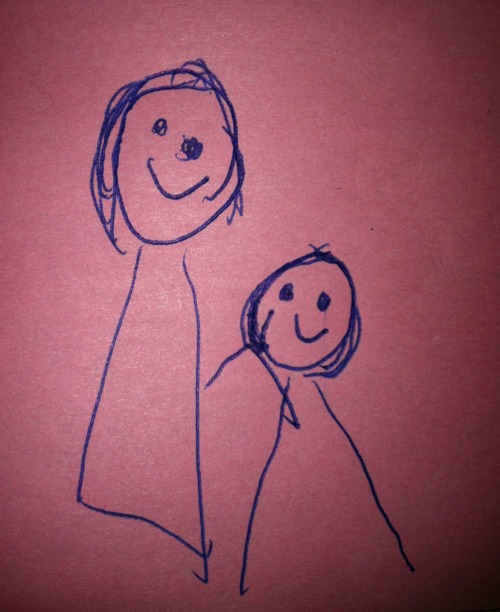 I was watching my daughter play with a bubble machine today. She and I were laughing as she was running through the bubbles, and we were both looking at the bubbles floating up to the sky trying to see different images. I looked over at her as she watched the bubbles drift away and she had the biggest, sweetest smile on her face. I wondered in my mind if she would remember this extra special ordinary day because I knew I was making an imprint of it in my own mind…these special moments with just the two of us in the middle of the day in the middle of a week are starting to slip through my fingers… (more…)
I was watching my daughter play with a bubble machine today. She and I were laughing as she was running through the bubbles, and we were both looking at the bubbles floating up to the sky trying to see different images. I looked over at her as she watched the bubbles drift away and she had the biggest, sweetest smile on her face. I wondered in my mind if she would remember this extra special ordinary day because I knew I was making an imprint of it in my own mind…these special moments with just the two of us in the middle of the day in the middle of a week are starting to slip through my fingers… (more…)
Meredith finds it difficult to tell anyone where she is from exactly! She grew up in several states, but mainly Illinois. She has a Bachelor of Science degree in Elementary Education from the University of Illinois at Champaign/Urbana which is also where she met her husband. She taught kindergarten for seven years before she adopted her son from Guatemala and then gave birth to her daughter two years leter. She moved to Lagos, Nigeria with her husband and two children in July 2009 for her husband's work. She and her family moved back to the U.S.this summer(August 2012) and are adjusting to life back in the U.S. You can read more about her life in Lagos and her adjustment to being back on her blog: We Found Happiness.
More Posts







 I know some of you may not agree with the title of this post but humor me anyway. I’m writing this using my phone, while nursing and holding my seven-week-old daughter close to me, skin to skin. She’s been sick since birth, you see, and lost a significant amount of weight and is recovering from an infection. (The awesome ladies from my World Moms Blog family know in detail what’s been happening in my life lately and you folks who may be curious can get more details over at www.trulyrichmom.com.)
I know some of you may not agree with the title of this post but humor me anyway. I’m writing this using my phone, while nursing and holding my seven-week-old daughter close to me, skin to skin. She’s been sick since birth, you see, and lost a significant amount of weight and is recovering from an infection. (The awesome ladies from my World Moms Blog family know in detail what’s been happening in my life lately and you folks who may be curious can get more details over at www.trulyrichmom.com.)




 I was watching my daughter play with a bubble machine today. She and I were laughing as she was running through the bubbles, and we were both looking at the bubbles floating up to the sky trying to see different images. I looked over at her as she watched the bubbles drift away and she had the biggest, sweetest smile on her face. I wondered in my mind if she would remember this extra special ordinary day because I knew I was making an imprint of it in my own mind…these special moments with just the two of us in the middle of the day in the middle of a week are starting to slip through my fingers…
I was watching my daughter play with a bubble machine today. She and I were laughing as she was running through the bubbles, and we were both looking at the bubbles floating up to the sky trying to see different images. I looked over at her as she watched the bubbles drift away and she had the biggest, sweetest smile on her face. I wondered in my mind if she would remember this extra special ordinary day because I knew I was making an imprint of it in my own mind…these special moments with just the two of us in the middle of the day in the middle of a week are starting to slip through my fingers… 


